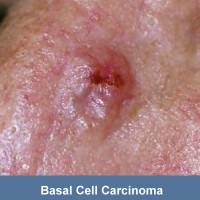 Researchers from Australia and the Netherlands conducted an 8-year follow-up study.
Researchers from Australia and the Netherlands conducted an 8-year follow-up study.
First, the details.
- The incidence of basal cell carcinoma (BCC) and squamous cell carcinoma (SCC) of the skin was followed in a random sample of 485 Australian adults.
- Participants were divided into thirds according to their blood concentrations of carotenoids, {alpha}-tocopherol, and selenium between 1996 and 2004.
And, the results.
- There was no relationship between carotenoids or {alpha}-tocopherol levels and the incidence of BCC or SCC.
- Compared with those who had the lowest selenium concentrations at the start of the study (0.4-1.0 µmol/L), those with the highest serum selenium concentrations (1.3-2.8 µmol/L) had a significantly decreased incidence of BCC tumors and SCC tumors.
The bottom line?
The authors concluded, “Relatively high serum selenium concentrations are associated with an ~60% decrease in subsequent tumor incidence of both BCC and SCC.”
The FDA states, “Some scientific evidence suggests that consumption of selenium may reduce the risk of certain forms of cancer. However, FDA has determined that this evidence is limited and not conclusive.”
Since the publication of this study, researchers from the US reported no increased melanoma risk with supplemental selenium in a study of 69,671 men and women who self-reported intake of multivitamins and supplemental antioxidants including selenium and beta-carotene over 10 years.
6/1/09 20:47 JR, updated 9/8/10